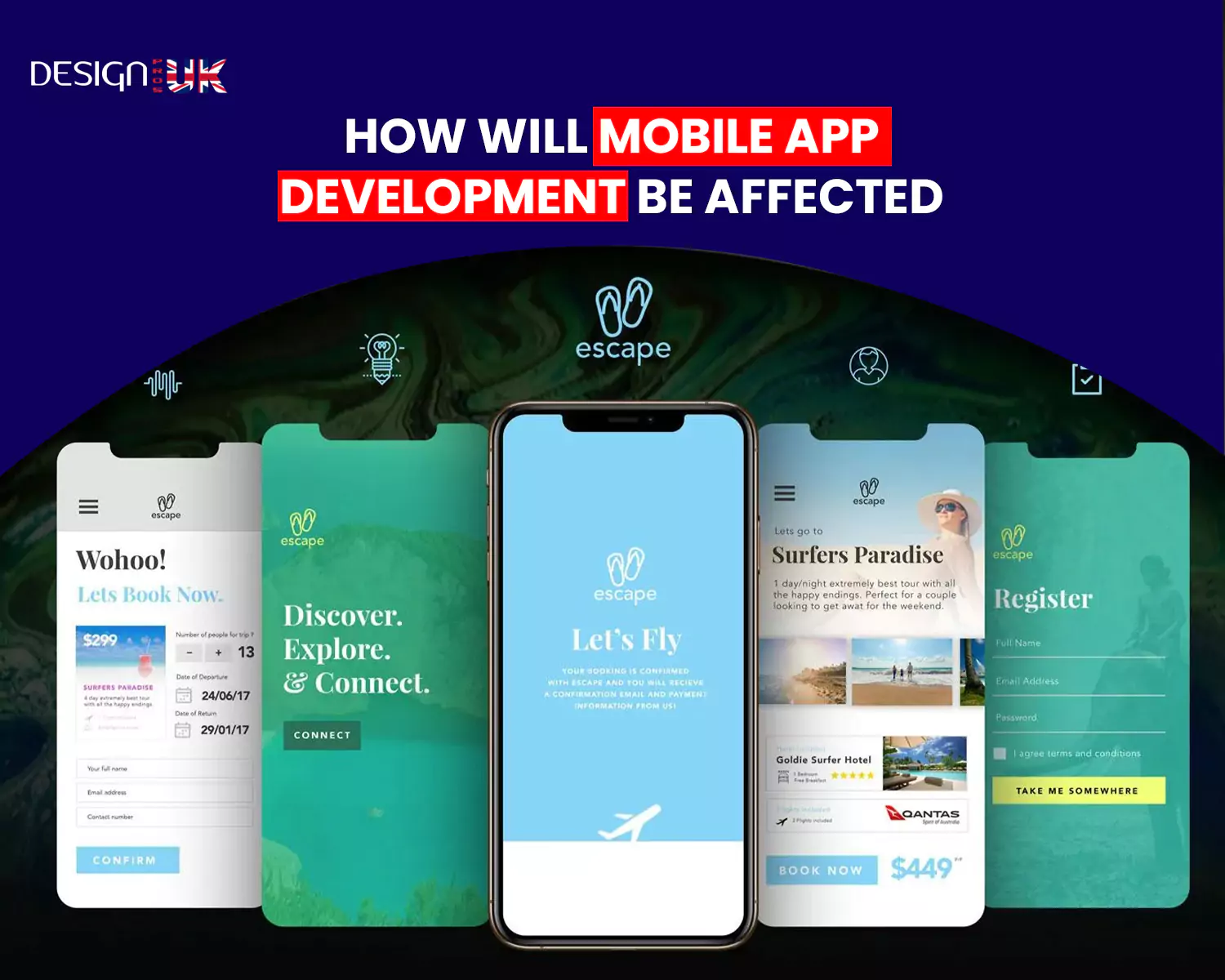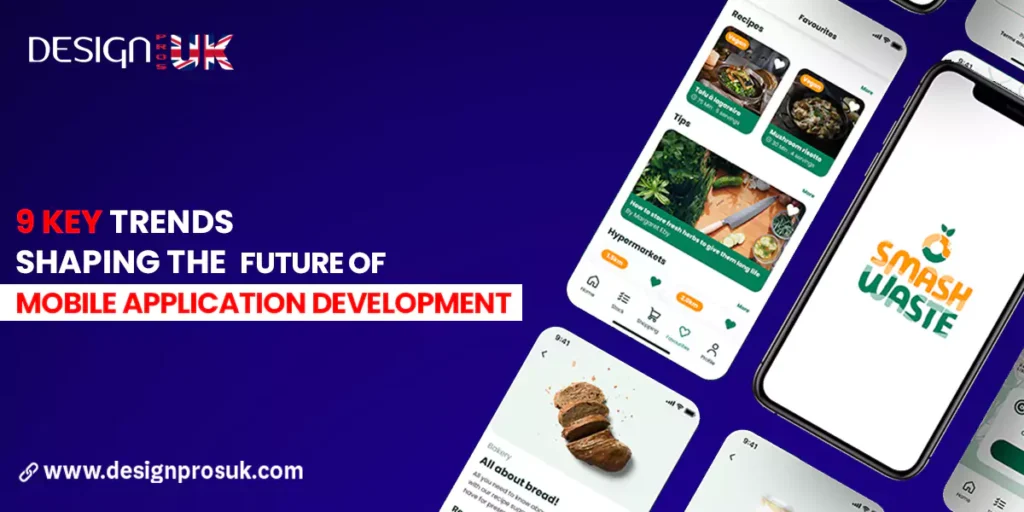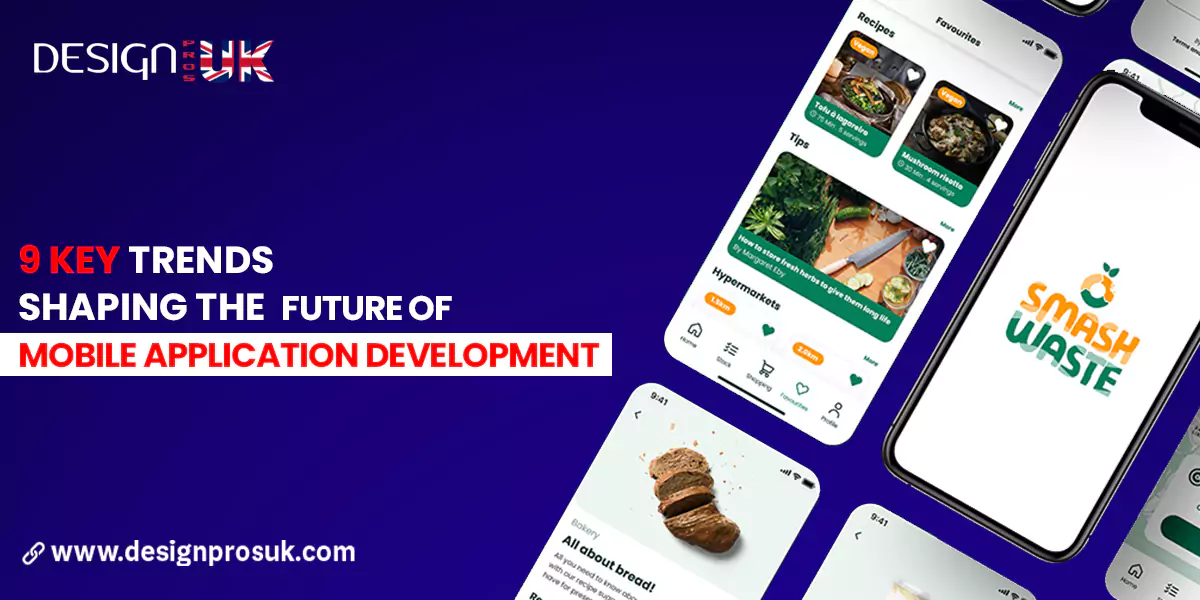Mobile application development is advancing rapidly within the ever-changing innovation field. Developers constantly modify unused patterns and innovations to keep up with the speedy development of smartphones and provide a smooth, automated experience. In this blog, we’ll look at nine significant trends that affect the future of mobile application advancement. We will explore these trends, from the rise of Android app development to introduction of cutting-edge instruments and techniques.
Key Takeaways
- Security remains a top concern in mobile app development. Developers must address vulnerabilities like weak server-side controls and inadequate transport layer protection.
- Ensuring compatibility across various devices and platforms, including IoT and smart devices, requires thorough testing and attention to detail.
- Ongoing maintenance and regular updates are essential to sustaining the success of mobile apps, reflecting their complexity of functionality.
- Meeting user expectations for intuitive, fast, and feature-rich experiences is crucial for user engagement and satisfaction.
- Embracing key trends such as Android app development, cross-platform development, and AI and ML integration can drive innovation and success in mobile app development.
9 Trends Driving the Future of Mobile Application Development
Future of Mobile Application Development key trends are as follows:
1.The Dominance of Android App Development
Android app advancement continues to rule the mobile app scene, with the Android operating framework controlling most smartphones worldwide. As the demand for Android apps continues to develop, developers must stay up-to-date with the most recent overhauls and highlights advertised by the Android platform. With millions of apps and billions of downloads on the Google Play Store, Android app developers have enduring opportunities. From creating innovative consumer-facing apps to creating performance layouts, Android app advancement offers a constant and varied showcase for developers to explore.
2.Rise of Cross-Platform Advancement
In a progressively divided mobile biological system, cross-platform advancement has developed as a cost-effective way to reach a larger audience. Systems like Respond Local, Flutter, and Xamarin access developers to create apps that run consistently on different platforms, including iOS and Android, employing a single codebase. By grasping cross-platform development, developers can facilitate the app development process, decrease advertising time, and maximize their reach without compromising execution or user experience.
3.Emphasis on User Experience (UX) Design
As versatile applications become ingrained daily, user experience designs have never been more critical. Today’s users anticipate natural, outwardly engaging, responsive apps with consistent ways and easy usefulness. Versatile app developers must prioritise UX designs throughout the development process, from conducting user investigation and prototyping to testing and cycling. By making user-centric designs and incorporating criticism from genuine users, developers can guarantee that their apps meet the requirements and desires of their target audience.
4.Integration of Artificial Intelligence (AI) and Machine Learning (ML)
AI and ML innovations are revolutionising how we connect with versatile applications, empowering personalised experience, proactive analytics, and intelligent automation. AI-powered highlights are becoming progressively common in mobile apps, from virtual colleagues and chatbots to proposal engines and picture acknowledgement. By integrating AI and ML capabilities into their applications, developers can upgrade user engagement, advance decision-making, and create new opportunities for advancement and separation.
5.Adoption of Augmented Reality (AR) and Virtual Reality (VR)
Expanded and virtual reality are changing the mobile app experience, creating new possible outcomes for immersive gaming, intuitive storytelling, virtual shopping, and more. With the discharge of ARKit for iOS and ARCore for Android, developers have access to measurable tools and systems for making AR and VR experiences. AR and VR are reshaping the history of mobile application advancement, improving the retail experience with virtual try-on highlights and gamifying wellness schedules with intelligent workouts.
6.Focus on Security and Data Privacy
With the expanding bulk of information violations and security concerns, security has become the most critical requirement for mobile app developers. From actualising vigorous encryption and verification tools to following industry measures and directions, developers must take proactive measures to secure user information and guarantee the security of their applications.
By prioritising security and information protection throughout the advancement lifecycle, developers can build trust with their users and moderate the chance of potential security vulnerabilities.
7.Acceleration of Instant Apps and Progressive Web Apps
Instant and progressive web apps revolutionise how users find and associate with versatile substances. They offer a quick, lightweight, and frictionless experience without installation. Moment apps permit users to get to app usefulness without downloading the complete app, whereas PWAs provide an app-like experience straightforwardly inside the net browser.
By leveraging instant apps and PWAs, developers can reach users across different stages and devices, improve user engagement, and drive changes without blocking app installation.
8.Evolution of Internet of Things (IoT) Integration
The Internet of Things (IoT) is reshaping mobile application advancement, empowering consistent networks and integration with smart devices and wearables. From smart home automation and associated car solutions to well-being and wellness, IoT innovation is creating new opportunities for inventive mobile apps. Developers can leverage IoT integration to create personalised, context-aware experiences that upgrade user efficiency, comfort, and quality of life.
9.Adoption of Low-Code and No-Code Development Platforms
Low-code and no-code development platforms democratise mobile application development. They help business users and citizen developers to make apps without conventional coding aptitudes. These stages offer visual interfacing, drag-and-drop usefulness, and pre-built layouts that streamline the app development handle and decrease advertising time.
By embracing low-code and no-code development platforms, organisations can enable non-technical users to contribute to app development activities, quicken advanced change, and drive development.
How will Mobile App Development be affected?
 The landscape of mobile app development constantly evolves, presenting developers with new opportunities and challenges, whether building new apps or maintaining existing ones.
The landscape of mobile app development constantly evolves, presenting developers with new opportunities and challenges, whether building new apps or maintaining existing ones.
-
Security Concerns
Security remains a critical issue in mobile app development, with many apps failing basic security tests. The increasing amount of personal data stored in apps makes the consequences of a security breach severe. Developers must address concerns like weak server-side controls and inadequate transport layer protection.
-
Compatibility Across Devices
Ensuring compatibility is a significant challenge for developers with the growing variety of devices and platforms. The rise of IoT and smart devices adds to this complexity, increasing the likelihood of compatibility issues. Thorough automated, functional, and exploratory testing is essential to address these challenges effectively.
-
Ongoing Maintenance and Updates
Developers must commit to ongoing maintenance and regular updates to sustain mobile apps’ success. The level of development and testing required to ensure consistent performance over time directly correlates with the complexity of app functionality.
-
Meeting User Expectations
Users expect mobile apps to deliver intuitive, fast, and feature-rich experiences that outshine traditional websites. Failing to meet these expectations can lead to negative user feedback and high deletion rates. Thus, delivering exceptional user experiences is crucial for maintaining user engagement and satisfaction.
Flawless Mobile App Development With Design Pros UK
We at Design Pros UK know how important it is to keep up with the latest developments in mobile app creation. Our skilled development team specialises in creating cutting-edge, memorable mobile apps that satisfy modern customers’ demands and expectations. We use the newest trends and technology, from cross-platform solutions to Android app development, to provide outstanding user experiences. Join Design Pros UK to take advantage of fresh chances for achievement in the dynamic field of mobile application development.
FAQs:
Developers must prioritise robust encryption, authentication mechanisms, and adherence to industry standards and regulations to protect user data and ensure app security.
Thorough automated, functional, and exploratory testing is essential to identifying and addressing compatibility issues across devices and platforms.
Regular updates are necessary to fix bugs, introduce new features, and ensure compatibility with the latest devices and operating systems, maintaining user satisfaction and engagement.
Developers can create apps that meet the needs and expectations of their target audience by prioritising user experience design throughout the development process, conducting user research, and incorporating feedback from real users.
Key trends include Android app development dominance, cross-platform development, AI and ML integration, AR and VR adoption, security and data privacy, instant apps and PWAs, IoT integration, and low-code/no-code development.
Conclusion
As versatile innovation advances quickly, staying ahead of the curve is essential for versatile app developers. By grasping key patterns such as Android app development, cross-platform advancement, user involvement design, AI and ML integration, AR and VR appropriation, security and information privacy, instant apps and PWAs, IoT integration, and low-code/no-code development, developers can make imaginative and impactful mobile applications that meet the wants and desires of today’s users. With the proper tools, strategies, and techniques, versatile mobile app developers can explore the ever-changing world of mobile application advancement and create modern opportunities for development and victory in the digital age.





